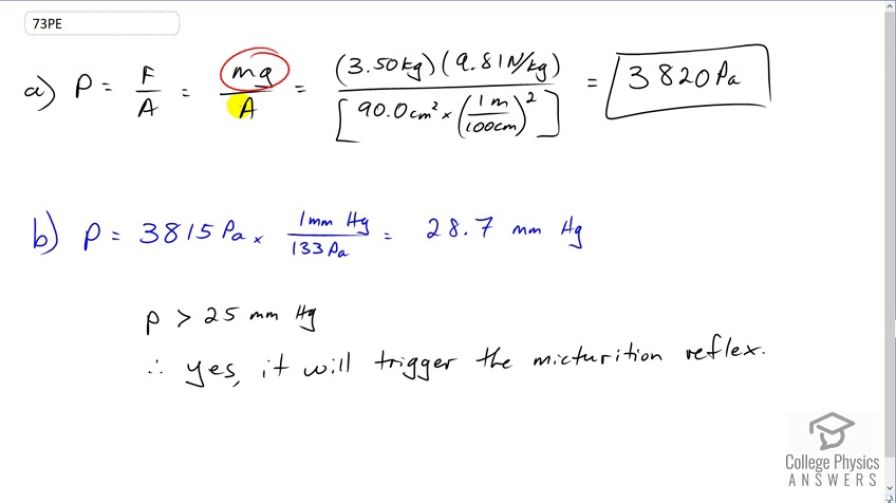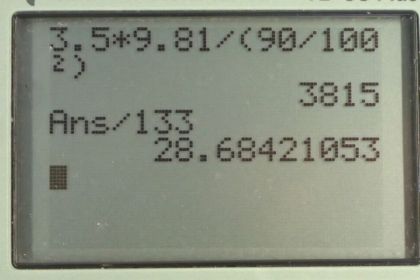Question
A full-term fetus typically has a mass of 3.50 kg. (a) What pressure does the weight of such a fetus create if it rests on the mother's bladder, supported on an area of ? (b) Convert this pressure to millimeters of mercury and determine if it alone is great enough to trigger the micturition reflex (it will add to any pressure already existing in the bladder).
Final Answer
- Yes, it will trigger the micturition reflex.
Solution video
OpenStax College Physics, Chapter 11, Problem 73 (Problems & Exercises)

vote with a rating of
votes with an average rating of
.
Calculator Screenshots
Video Transcript
This is College Physics Answers with Shaun Dychko. The pressure that this fetus will exert on the bladder is the weight of the fetus m g divided by the area of the bladder or that's in contact with the bladder. So three and a half kilograms times 9.81 newtons per kilogram divided by 90 square centimeters of contact area between the fetus and the bladder. Then we convert that into square meters by multiplying by one meter for every 100 centimeters twice. This works out to 3820 Pascals. We convert this into millimeters of mercury because the textbook tells us that a pressure in excess of 25 millimeters of mercury will trigger the micturition reflex and make a sensation of needing to pee even though there may not be enough fluid in the bladder to make that a genuine necessity. So we have 3815 Pascals times one millimeter of mercury for every 133 Pascals which is 28.7 millimeters of mercury. That exceeds 25 and so yes, it will trigger the micturition reflex.
